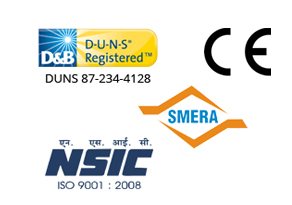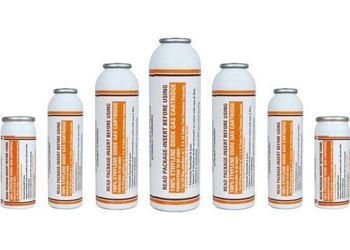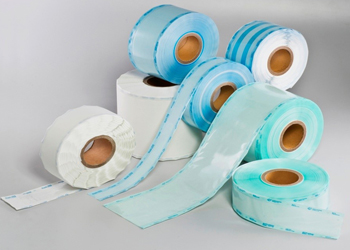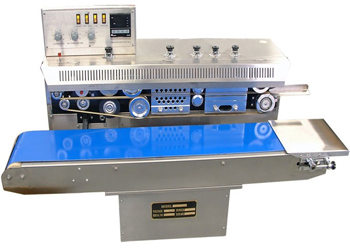When purchasing a medical autoclave, you should look for the Biological Indicators on the package. These can indicate whether a product was sterilized in a medical autoclave. You can also look for Pulse Vacuum Steam Sterilizers or Benchtop autoclaves. The following are some advantages and disadvantages of each type of medical autoclave. Read on to learn more.
Biological Indicators on Medical Packaging
Biological indicators on medical autoclave sterilizer are a crucial part of sterility assurance programs. This is because they provide immediate verification that the sterilization process is working. Failure to sterilize items can result in the spread of infection. Biological indicators are available in various forms, including spore-tests and printed results. Here are some examples of how BIs are used. Biological indicators are available on a variety of sterilizers.
Biological indicators are small strips of thick filter paper covered with spores. The strips are sealed in glassine pouches and placed in sterile culture media. The strips are incubated at a specified temperature for seven days to ensure no growth. If the spores show no growth, the test is negative. If growth occurs, the strip is positive. Otherwise, it is negative.
Non-medical use Autoclaves
Medical professionals require sterile instruments and supplies in order to perform their procedures. Autoclave sterilizers can effectively sterilize dental instruments. These devices use high pressure and steam to destroy pathogenic microbes and make them ready for use. However, some medical equipment must undergo additional steps of sterilisation before they can be used. Non-medical use autoclave sterilizers are not suitable for this purpose.
When choosing an autoclave for non-medical use, you should look at its capacity, installation method, and utility consumption. Remember to consider the total cost of ownership when comparing different autoclaves. In the healthcare industry, a tabletop autoclave may be more suitable. Large hospitals and dental clinics need to sterilize large amounts of equipment quickly. There are also larger autoclaves for major manufacturing companies.
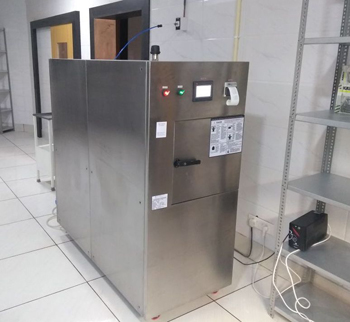
Pulse Vacuum Steam Sterilizers
Pre & post vacuum steam sterilizers for medical autoclaves are an excellent choice for sterile sterilization in the dental industry. They have improved sterilization compared to traditional autoclaves, and are widely accepted in other regions of the world. Pulse Vacuum Steam Sterilizers are highly effective for high-temperature sterilization. Using saturated hot steam, it reaches temperatures of over 132-134 degrees Celsius, which is more than enough to kill bacteria and other pathogens on the surface of the sterilized items. After the sterilization, medical instruments and other items must be packed loosely so that they do not get contaminated with steam.
Benchtop Autoclaves
Benchtop medical autoclave sterilizers have two major benefits. One is that they are compact and intelligent, and the other is that they offer high performance. Benchtop medical autoclave sterilizers come with pre-programmed cycles, but some models can also be programmed to meet your specific needs. These sterilizers feature separate water-level check mechanisms. The latter allows for safety in environments with uneven floors. They are also equipped with a digital display and temperature gauge.
The cost of an autoclave will vary depending on its capacity and installation. Consider how much maintenance will be required as well as how many products you’ll sterilize. You’ll also want to consider the total cost of ownership, utility consumption, and cycle time. The cost of an autoclave will also depend on the manufacturer. Choose a brand that makes autoclaves with electronic signature controls so you’ll have peace of mind.
Metal Sterilization Containers
Medical autoclaves have many uses for medical autoclave sterilization containers. These devices hold the sterilized items in trays. They are available in a variety of materials, from 304 stainless steel to anodized aluminum. Stainless steel is the most commonly used type of material for sterilization containers. Other materials include medical grade silicone and perforated metal. Read on for more information.
Stainless steel and aluminum trays are the most common reusable containers for autoclave sterilizers. They are corrosion resistant and compatible with most medical devices. They eliminate the danger of compromised blue wrap. These sterile storage containers have a filtration system built into the lid and cover and silicone gaskets on the bottom to prevent leakage. Case Medical sterile processing efficiency assessment includes multiple specifications.
Class B Pre-post Vacuum Autoclaves
The Tuttnauer Pre/Post Vacuum Class B Tabletop Autoclave is a high quality, reliable class B medical autoclave with a built-in thermal printer, cassette rack, and five stainless-steel trays. In addition to a one-year parts warranty, the autoclave comes with a ten-year chamber warranty. Its stainless-steel chamber and EZFill door make it easy to sterilize trays.
Class B pre-post vacuum medical autoclaving chambers are more effective than Class S chambers. They can remove more air from difficult-to-sterilize loads, including capillary and porous instruments. These autoclaves are designed to meet current sterilization standards such as ANSI/AAMI ST55. These autoclaves are the perfect choice for any clinic.
Frequently Asked Questions
1. What are Biological Indicators on Medical Packaging and why are they important for sterilization?
A. Biological indicators on medical autoclave sterilizer are essential components of sterility assurance programs. They provide immediate verification that the sterilization process is effective. Failure to sterilize items properly can lead to the spread of infections. Biological indicators come in different forms, such as spore tests and printed results, and are available on various types of sterilizers.
2. What are the advantages of Pulse Vacuum Steam Sterilizers for medical autoclaves?
A. Pulse Vacuum Steam Sterilizers offer several advantages for medical autoclaves. They provide improved sterilization compared to traditional autoclaves and are widely accepted in the dental industry and other regions. These sterilizers are highly effective for high-temperature sterilization, reaching temperatures over 132-134 degrees Celsius. This level of heat is sufficient to kill bacteria and pathogens on the surface of the sterilized items. After sterilization, it’s important to pack medical instruments and other items loosely to prevent steam contamination.
3. What are the benefits of using Benchtop Autoclaves in medical settings?
A. Benchtop medical autoclave sterilizers have two significant benefits. First, they are compact and intelligent, saving space in medical settings. Second, they offer high performance with pre-programmed cycles and customizable options on certain models. These sterilizers feature separate water-level check mechanisms to ensure safety in environments with uneven floors. They are equipped with a digital display and temperature gauge for easy monitoring and control.
4. What are Metal Sterilization Containers and why are they important for medical autoclaves?
A. Metal sterilization containers are devices used to hold sterilized items in trays within medical autoclaves. They come in various materials, including 304 stainless steel and anodized aluminum. Stainless steel is the most commonly used material for sterilization containers due to its corrosion resistance and compatibility with most medical devices. These containers eliminate the risk of compromised packaging materials and often have built-in filtration systems and silicone gaskets to prevent leakage.
5. What are Class B Pre-post Vacuum Autoclaves and why are they preferred for medical sterilization?
A. Class B Pre-post Vacuum Autoclaves are highly reliable and effective medical autoclaves. They offer better performance than Class S chambers by removing more air from difficult-to-sterilize loads, including capillary and porous instruments. These autoclaves meet current sterilization standards, such as ANSI/AAMI ST55, ensuring compliance with industry regulations. Class B autoclaves are the preferred choice for clinics and healthcare facilities due to their ability to provide thorough sterilization.


